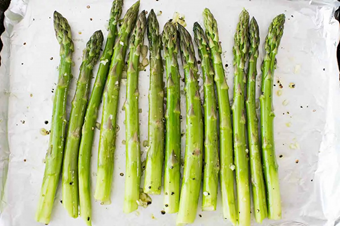
Asparagus Benefits that Might Surprise You
Most Victorians will know that Asparagus is grown around Koo Wee Rup in southern Victoria.

Geologically, this area was once inundated by the waters of Westernport Bay leaving the loamy soil slightly salty, a characteristic that favours excellent asparagus cropping. In 2019 this area produced 10,000 tons of which 70% was exported, mainly to Japan. By comparison, the worlds top producer, China, produces 8 million tons annually, of which 4,000 tons is exported to Australia in our 'off' season.
The Germans are particularly fond of Asparagus and make a celebration of the appearance of the first spears to appear in the shops as the start of spring. But there is more to discover about the historically consumed and celebrated Asparagus, from beliefs around the sulfurous odor it may add to a person's urine to rather surprising health benefits.
Asparagus, scientifically known as Asparagus officinalis, is among the top vegetable crops produced in the world, grown in nearly all parts of the globe. Originating in the Middle East, it has been widely cultivated for centuries as food as well as herbal medicine.
There are two main types of Asparagus: green and white. Countries like Peru, the Netherlands and Belgium are more familiar with the white varieties, while others like the United Kingdom and Australia typically only see the green type in supermarkets.
Does Asparagus have any health benefits?
Asparagus is a 'stand-out' source of vitamin K, an essential nutrient that plays an important role in blood clotting as well as bone health. The nutrient is also considered anticancer and insulin-sensitizing.
There are significant levels of folate and Vitamin B12 that indicate benefits such as lowering blood pressure and warding off depression, but the science is weak. On the other hand it is a culinary hit when the new seasons spears, rolled up in a slice of bread are offered as finger food.

